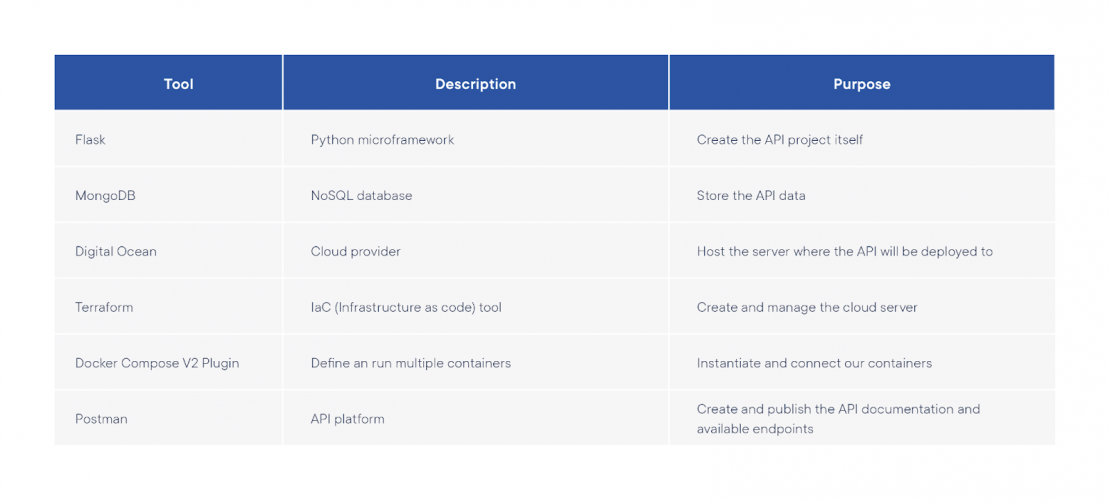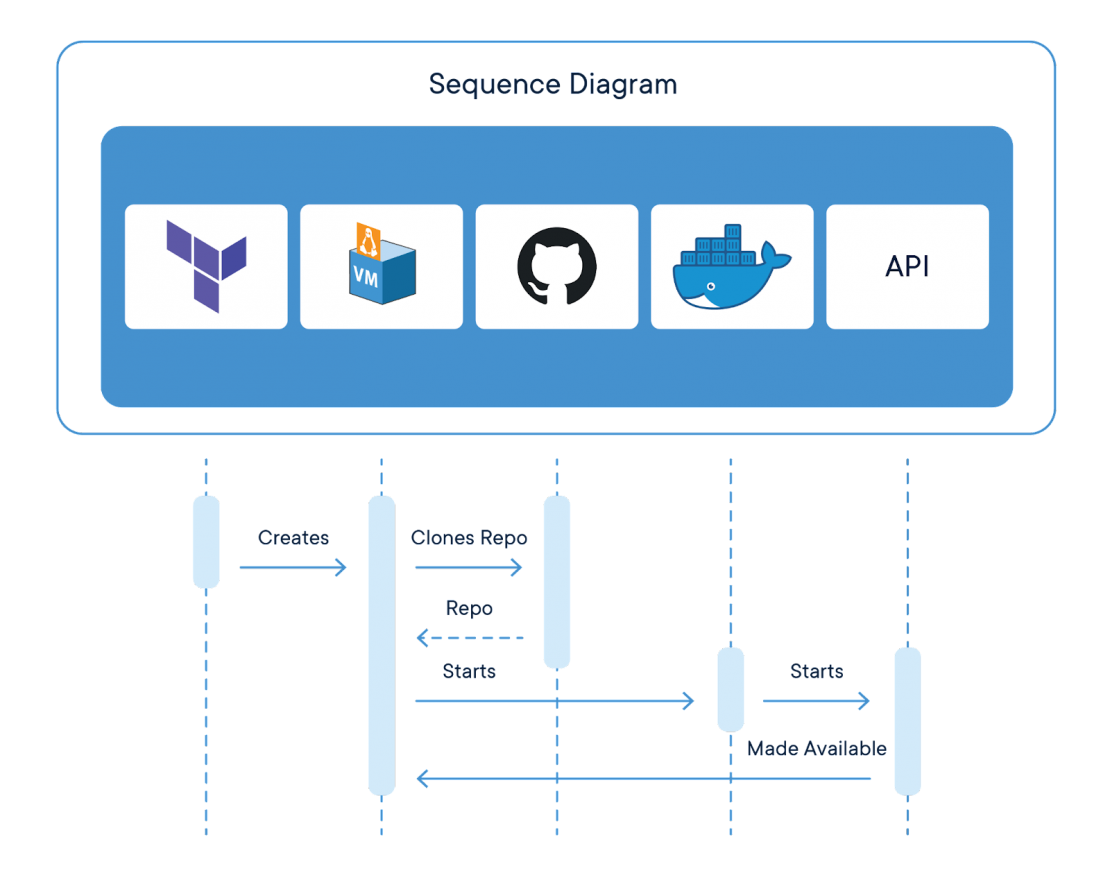This article will demonstrate a fun and useful use case of docker, where we will create and deploy to production a custom-made API. In our case, it will provide information about the episodes of the TV show “Game of Thrones”. Besides Docker, our stack will include:

About the API
The API will serve information about episodes and comments about them. There are endpoints for posting, deleting and editing those comments as well. The documentation can be accessed here. Also, its raw .json version is in the repository, just in case the link is no longer up.
About Terraform
This is an optional part for the project, but it is highly recommended as it demonstrates how easily we can automate the process of creating and managing cloud services. Here, we used it to create a server accordingly to our specification (Ubuntu 20.04, 1 CPU, 25 GB Disk), besides that, a SSH key was added to the server, so we can access it without being prompted for passwords. Learn more about SSH here.
About Docker Compose V2 plugin
Instead of the well-known “docker-compose”, we will use its new version, which now is accessible by the command “docker compose” (space instead of dash). This new tool is built in Golang, so it is faster than the former (built in Python). It also includes new features, such as the “profiles” attribute, that can be used to create groups of containers we wish to run from the docker-compose.yml file. Learn more about Docker Compose V2 here.
Sequence diagram
This sequence diagram illustrates the steps that will be taken in the whole process of deploying our API.

In short, Terraform will create the new server on Digital Ocean, then, from the new server, we will clone the API repository from GitHub and start the containers with “docker compose”. By doing so, the API will be available on the internet, via the server’s public address on port 5000 (used by the Flask project).
Considerations
The remote server was accessed by using “root”, which is the default user created when the new server instance was created. Having “root” remote accessing a server is not considered a good practice, The alternative is to create a new user for thar purpose and disable root access on the server (the SSH article referenced above demonstrates how to to so).
Regarding the API access, if you wish to use a similar project for professional/commercial usages, it is recommended to implement some mechanism to limit/control the API requests. There are several options out there for this purpose.
Further information
API Repository: https://github.com/costa86/game-of-thrones-api
About the author: https://costa86.com/
This is a guest blog post from Docker community member Lorenzo Costa. The blog originally appeared here. A video presentation of this post from Docker’s Community All-Hands can be found here.
DockerCon2022
Join us for DockerCon2022 on Tuesday, May 10. DockerCon is a free, one day virtual event that is a unique experience for developers and development teams who are building the next generation of modern applications. If you want to learn about how to go from code to cloud fast and how to solve your development challenges, DockerCon 2022 offers engaging live content to help you build, share and run your applications. Register today at https://www.docker.com/dockercon/